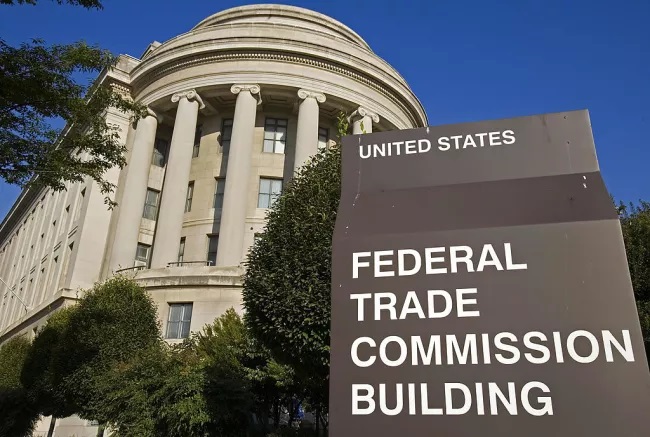FTC Sues Amazon for Illegally Protecting Its Monopolistic Power in Online Retail
The suit follows an June FTC lawsuit against practices relating to its Amazon Prime memberships

WASHINGTON, D.C. —The Federal Trade Commission and 17 state attorneys general have sued Amazon.com, Inc. alleging that the online retail and technology company is a monopolist that uses a set of interlocking anticompetitive and unfair strategies to illegally maintain its monopoly power.
The FTC and its state partners say Amazon’s actions allow it to stop rivals and sellers from lowering prices, degrade quality for shoppers, overcharge sellers, stifle innovation, and prevent rivals from fairly competing against Amazon.
It is part of a larger crackdown on big tech by the Biden administration that has seen lawsuits against Google and Meta as well as Amazon.
This lawsuit focuses on Amazon’s online retail operations and follows a June FTC lawsuit against Amazon that alleged it knowingly "duped millions of consumers" into unknowingly enrolling in Amazon Prime.”
The newest complaint alleges that Amazon engages in exclusionary conduct that stifled competition on price, product selection and quality. That conduct prevented current competitors from growing and new competitors from emerging, the FTC said in a press release.
The FTC also alleged that “Amazon’s far-reaching schemes impact hundreds of billions of dollars in retail sales every year, touch hundreds of thousands of products sold by businesses big and small and affect over a hundred million shoppers.”
“Our complaint lays out how Amazon has used a set of punitive and coercive tactics to unlawfully maintain its monopolies,” said FTC chair Lina M. Khan. “The complaint sets forth detailed allegations noting how Amazon is now exploiting its monopoly power to enrich itself while raising prices and degrading service for the tens of millions of American families who shop on its platform and the hundreds of thousands of businesses that rely on Amazon to reach them. Today’s lawsuit seeks to hold Amazon to account for these monopolistic practices and restore the lost promise of free and fair competition.”
Get the TV Tech Newsletter
The professional video industry's #1 source for news, trends and product and tech information. Sign up below.
“We’re bringing this case because Amazon’s illegal conduct has stifled competition across a huge swath of the online economy. Amazon is a monopolist that uses its power to hike prices on American shoppers and charge sky-high fees on hundreds of thousands of online sellers,” said John Newman, deputy director of the FTC’s Bureau of Competition. “Seldom in the history of U.S. antitrust law has one case had the potential to do so much good for so many people.”
The FTC and the states are seeking a permanent injunction in federal court that would prohibit Amazon from engaging in its unlawful conduct and pry loose Amazon’s monopolistic control to restore competition.
Connecticut, Delaware, Maine, Maryland, Massachusetts, Michigan, Minnesota, New Jersey, New Hampshire, New Mexico, Nevada, New York, Oklahoma, Oregon, Pennsylvania, Rhode Island, and Wisconsin joined the Commission’s lawsuit.
The FTC and states allege Amazon’s anti-competitive conduct occurs in two markets—the online superstore market that serves shoppers and the market for online marketplace services purchased by sellers. That anti-competitive conduct includes:
- Anti-discounting measures that punish sellers and deter other online retailers from offering prices lower than Amazon, keeping prices higher for products across the internet. For example, if Amazon discovers that a seller is offering lower-priced goods elsewhere, Amazon can bury discounting sellers so far down in Amazon’s search results that they become effectively invisible, the lawsuit alleged.
- Conditioning sellers’ ability to obtain “Prime” eligibility for their products—a virtual necessity for doing business on Amazon—on sellers using Amazon’s costly fulfillment service, which has made it substantially more expensive for sellers on Amazon to also offer their products on other platforms. This unlawful coercion has in turn limited competitors’ ability to effectively compete against Amazon, the lawsuit alleged..
With its amassed power across both the online superstore market and online marketplace services market, the lawsuit also alleged that Amazon "extracts enormous monopoly rents from everyone within its reach." This includes:
- Degrading the customer experience by replacing relevant, organic search results with paid advertisements—and deliberately increasing junk ads that worsen search quality and frustrate both shoppers seeking products and sellers who are promised a return on their advertising purchase, the lawsuit said.
- Biasing Amazon’s search results to preference Amazon’s own products over ones that Amazon knows are of better quality, the lawsuit said.
- Charging costly fees on the hundreds of thousands of sellers that currently have no choice but to rely on Amazon to stay in business. These fees range from a monthly fee sellers must pay for each item sold, to advertising fees that have become virtually necessary for sellers to do business. Combined, all of these fees force many sellers to pay close to 50% of their total revenues to Amazon. These fees harm not only sellers but also shoppers, who pay increased prices for thousands of products sold on or off Amazon, the lawsuit said.
George Winslow is the senior content producer for TV Tech. He has written about the television, media and technology industries for nearly 30 years for such publications as Broadcasting & Cable, Multichannel News and TV Tech. Over the years, he has edited a number of magazines, including Multichannel News International and World Screen, and moderated panels at such major industry events as NAB and MIP TV. He has published two books and dozens of encyclopedia articles on such subjects as the media, New York City history and economics.

